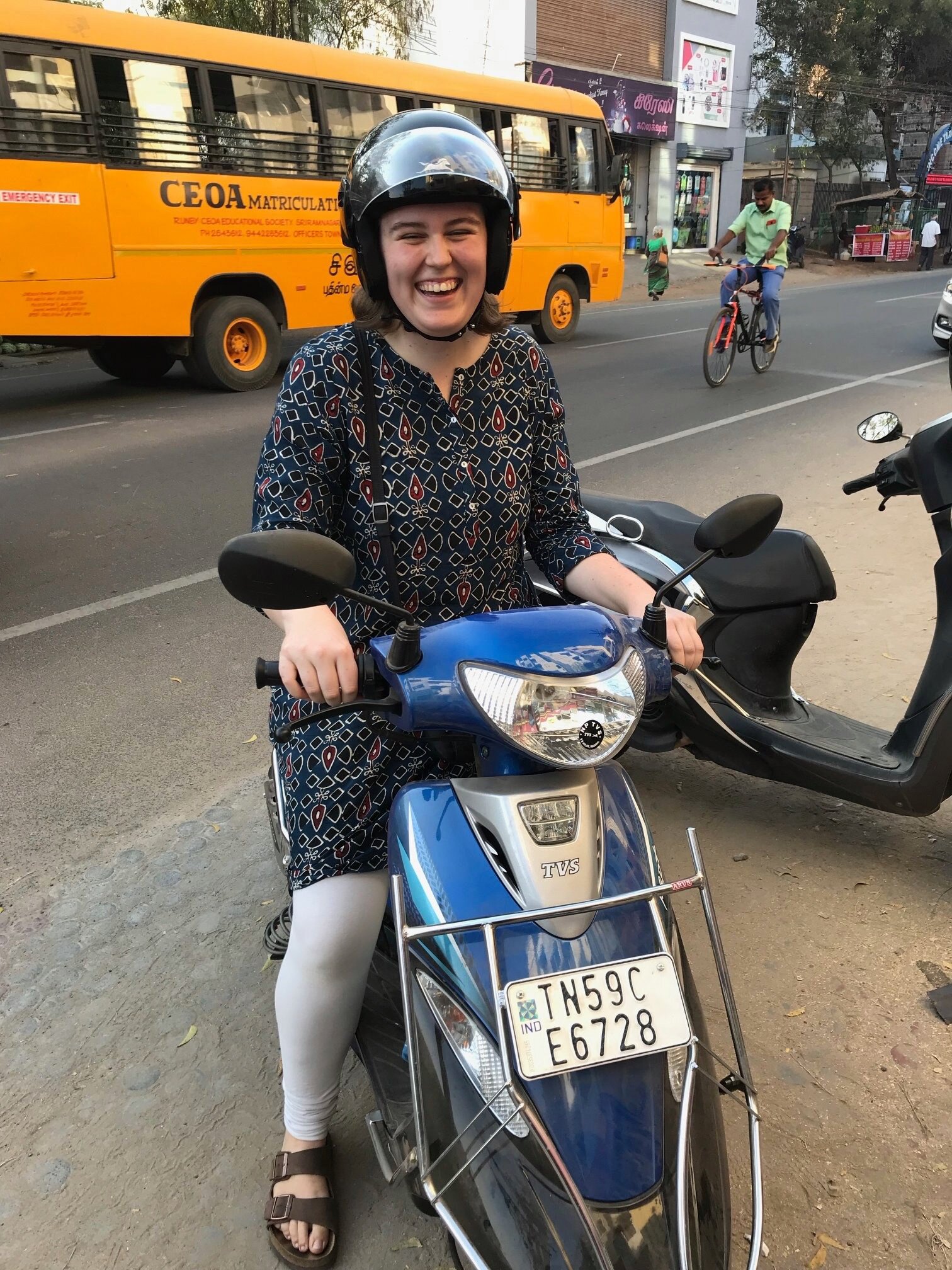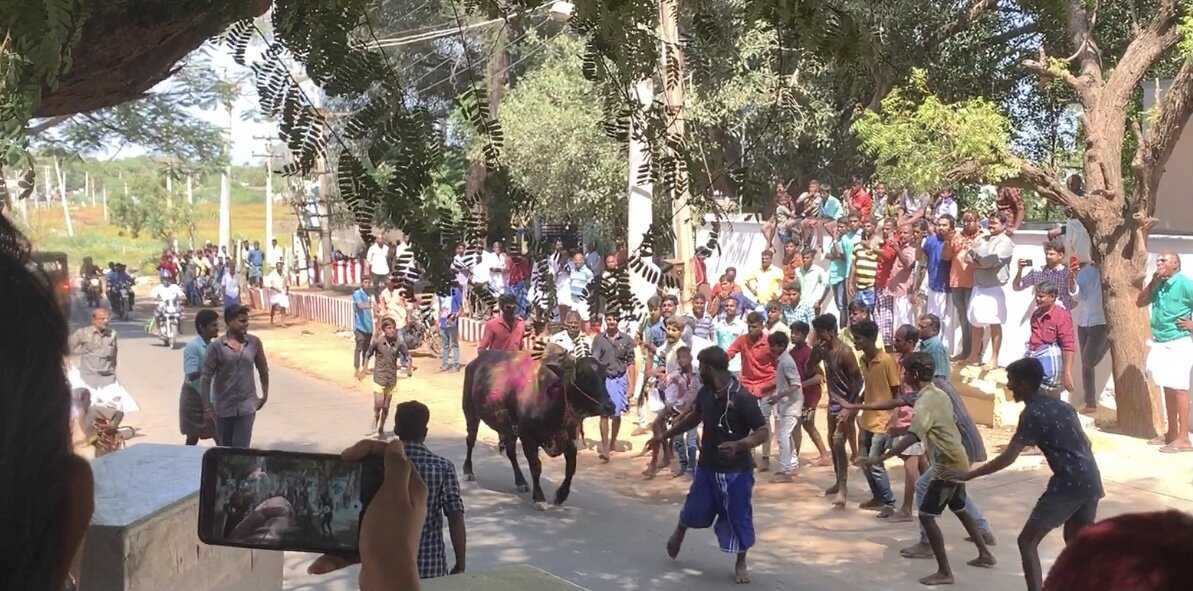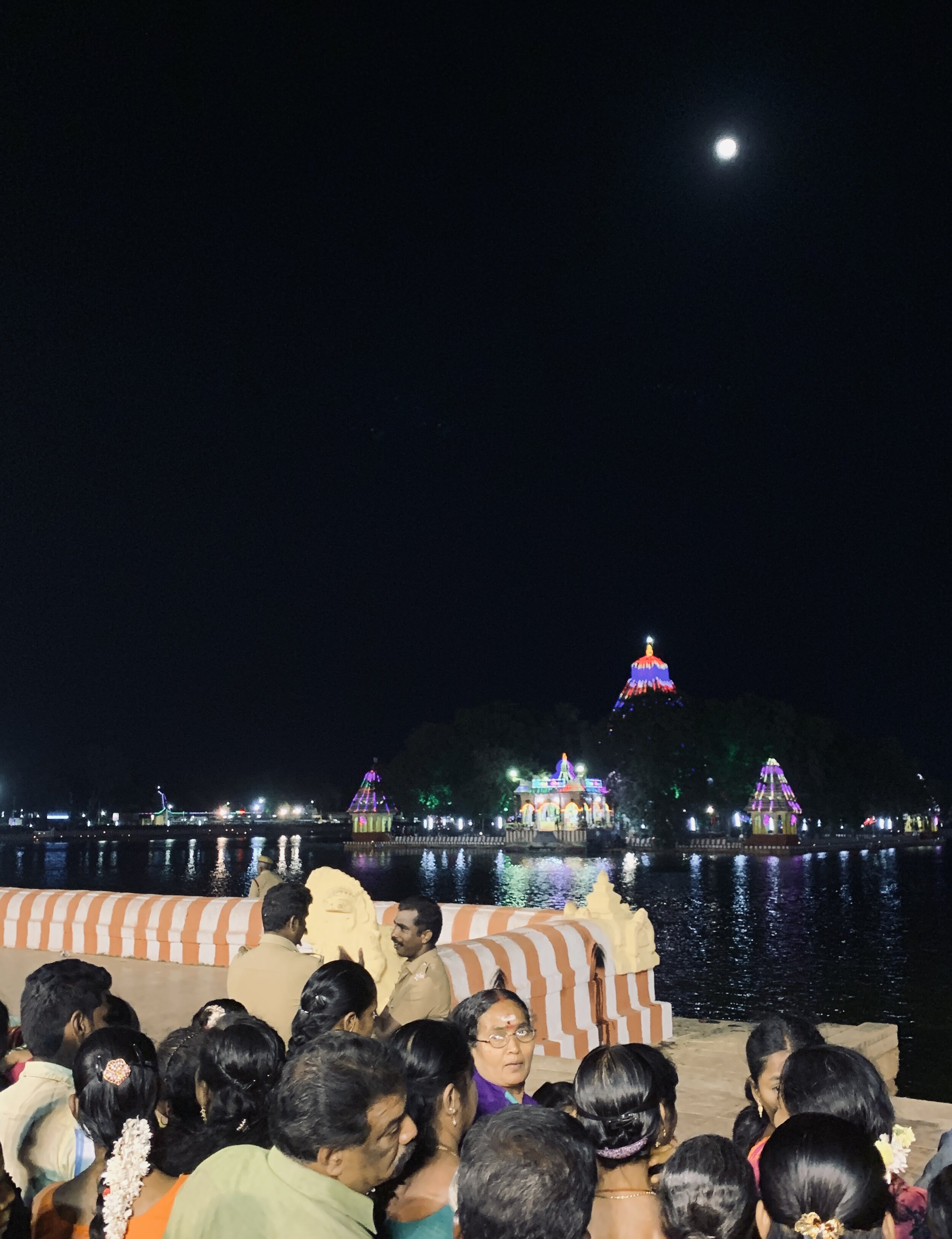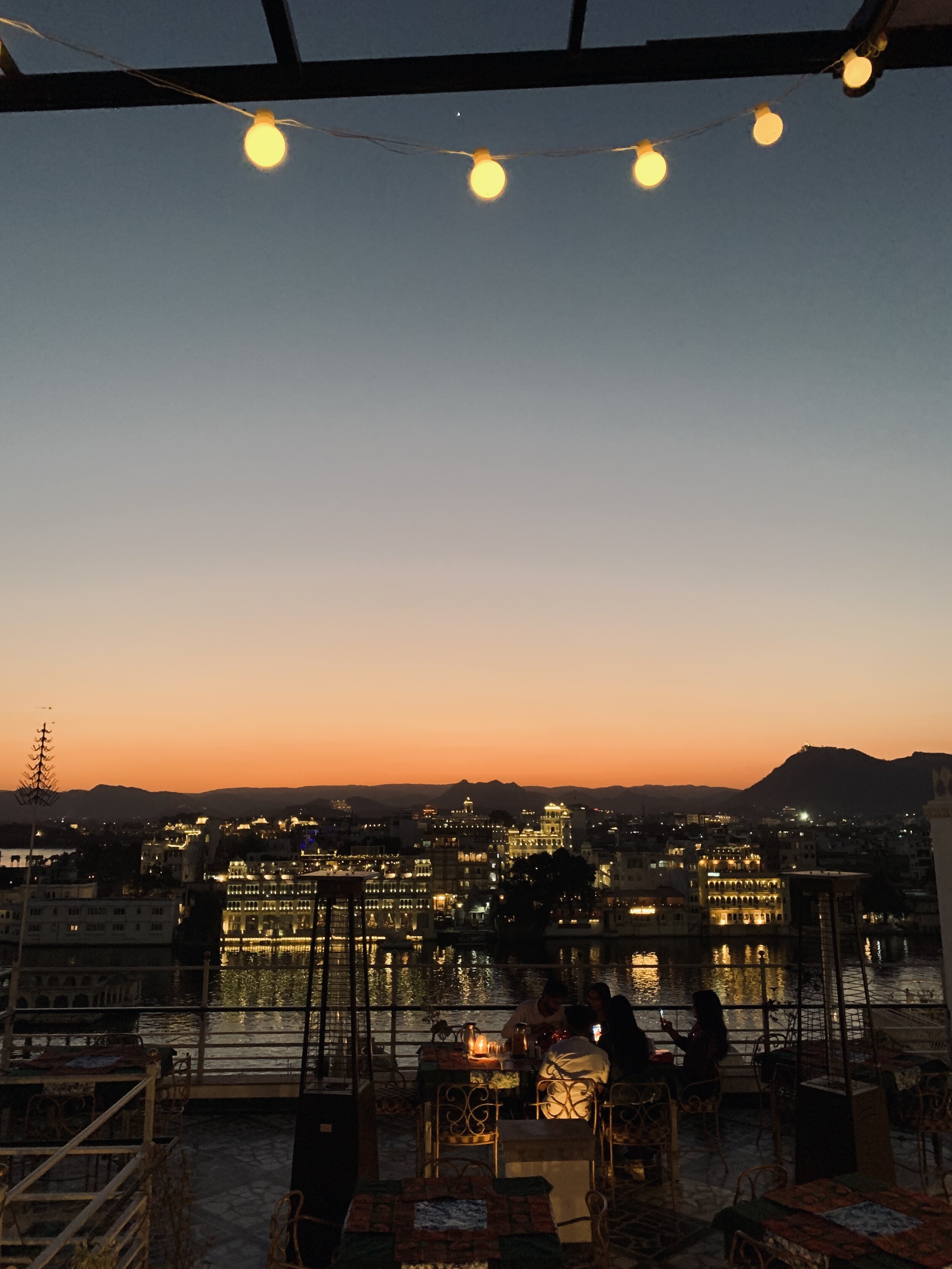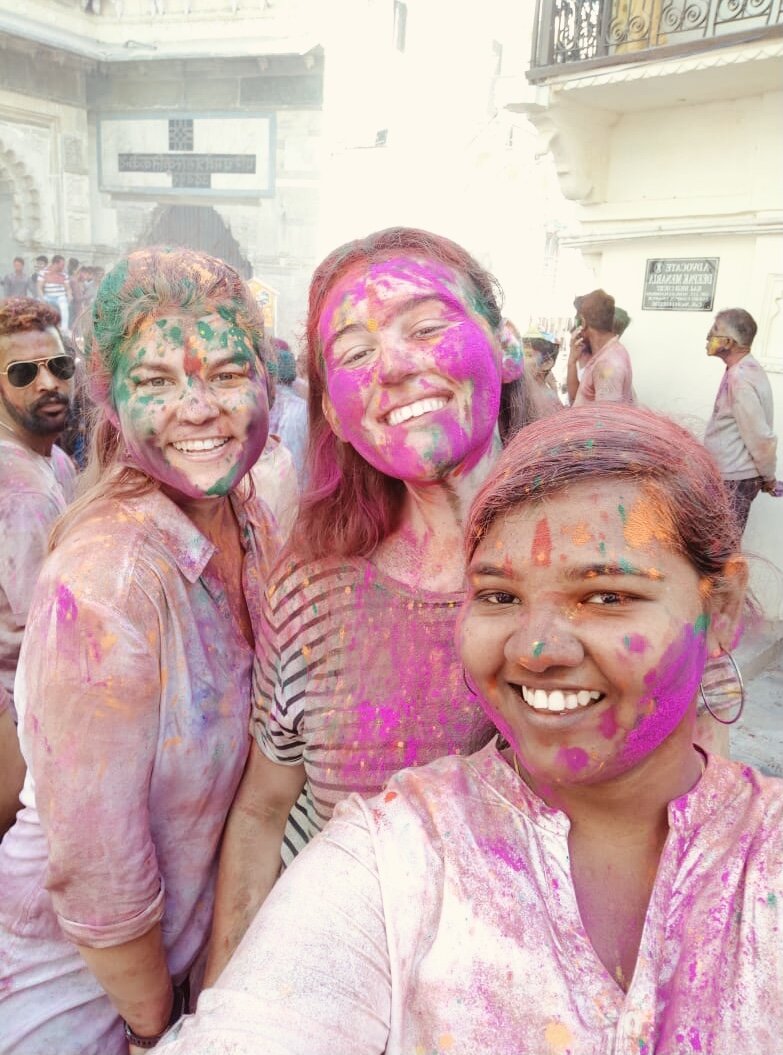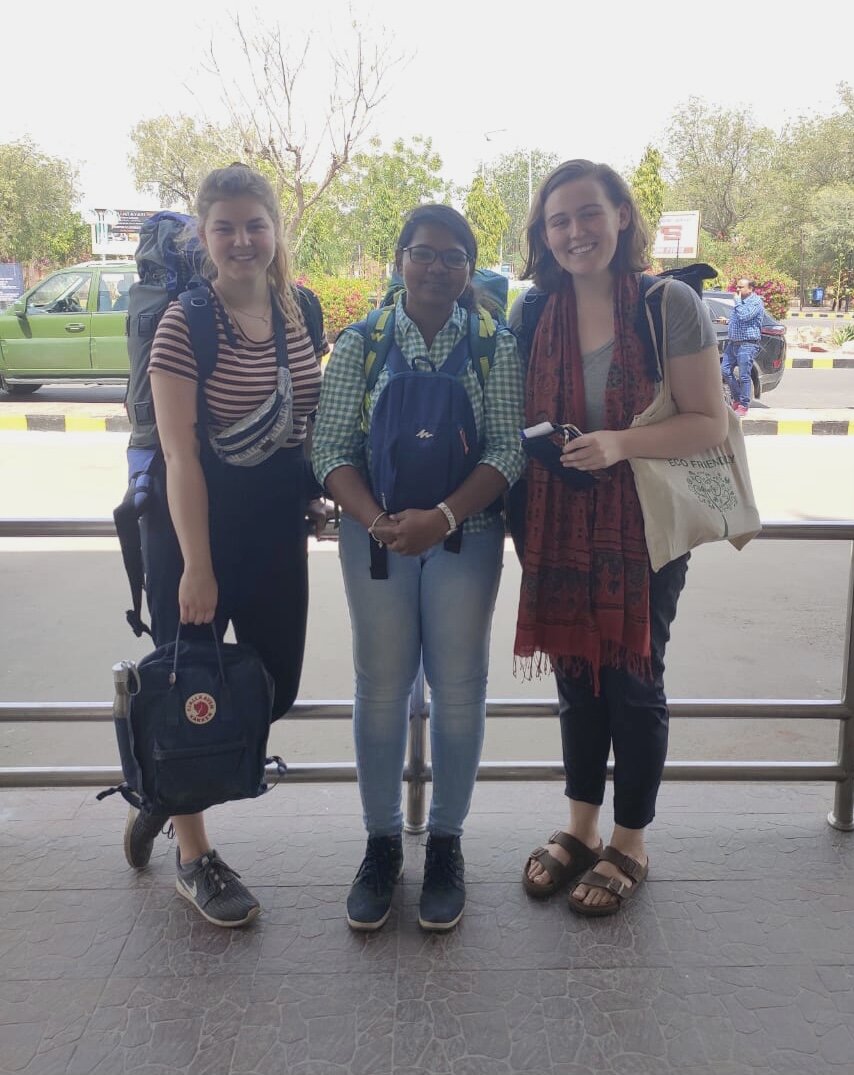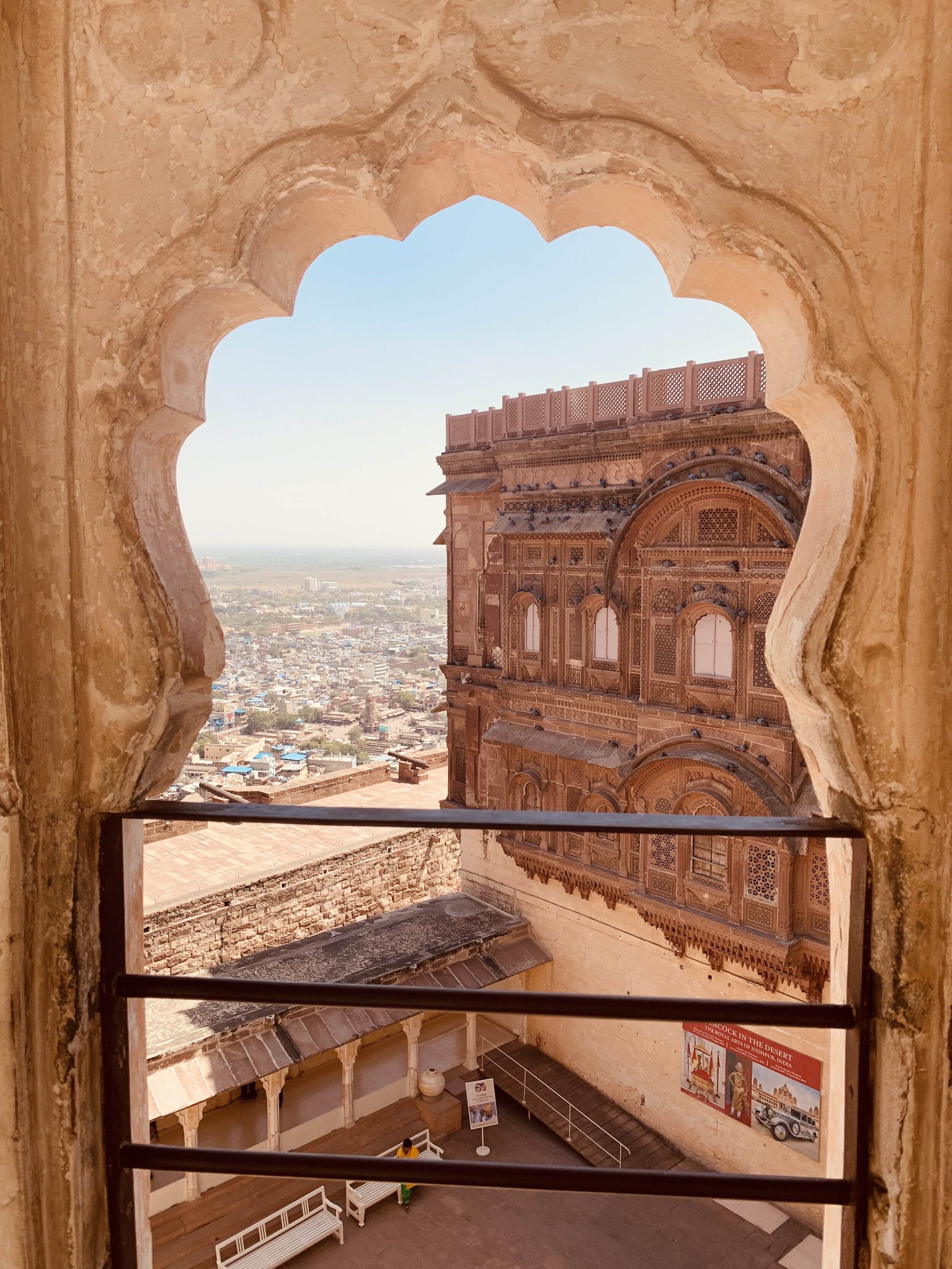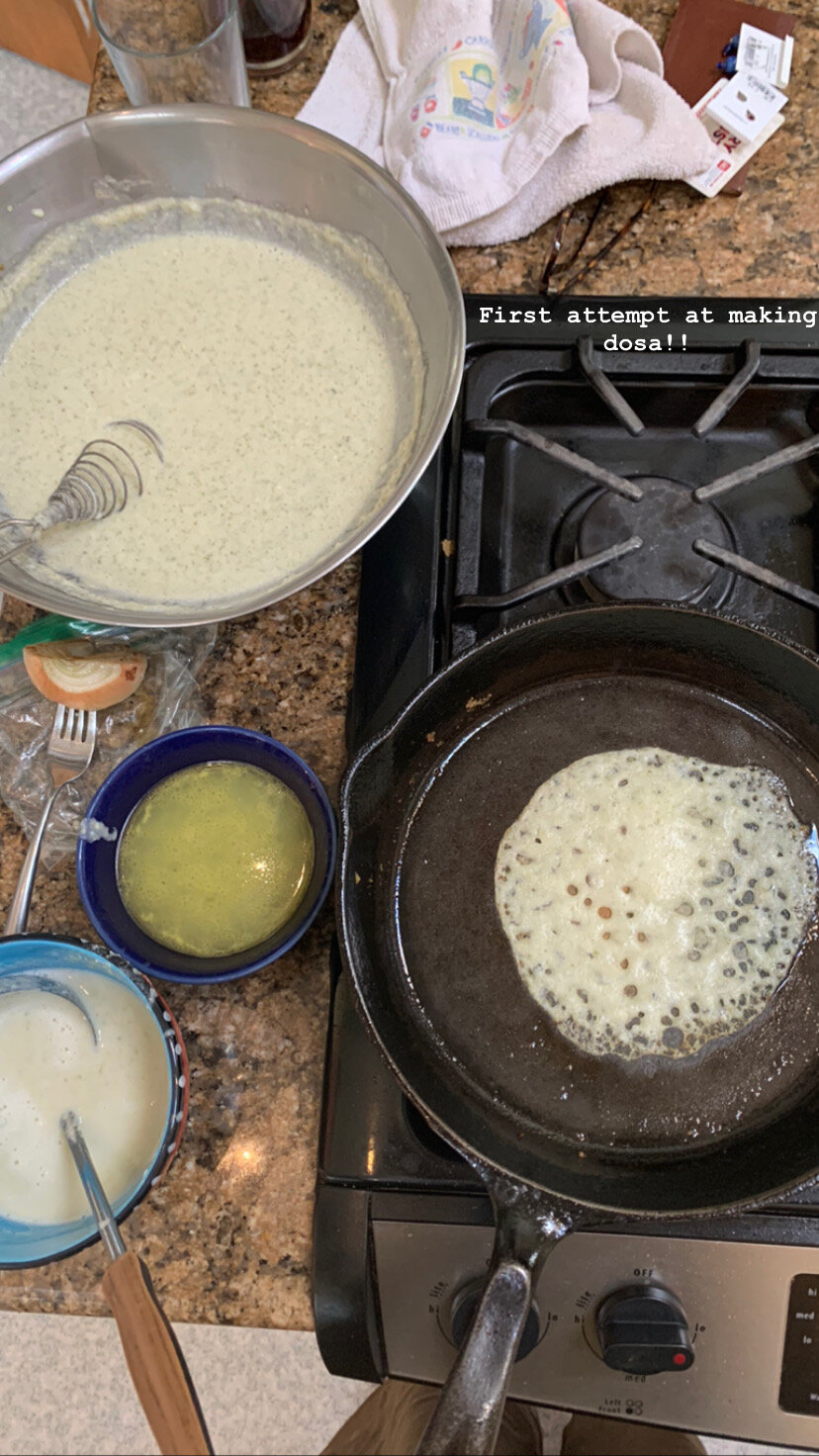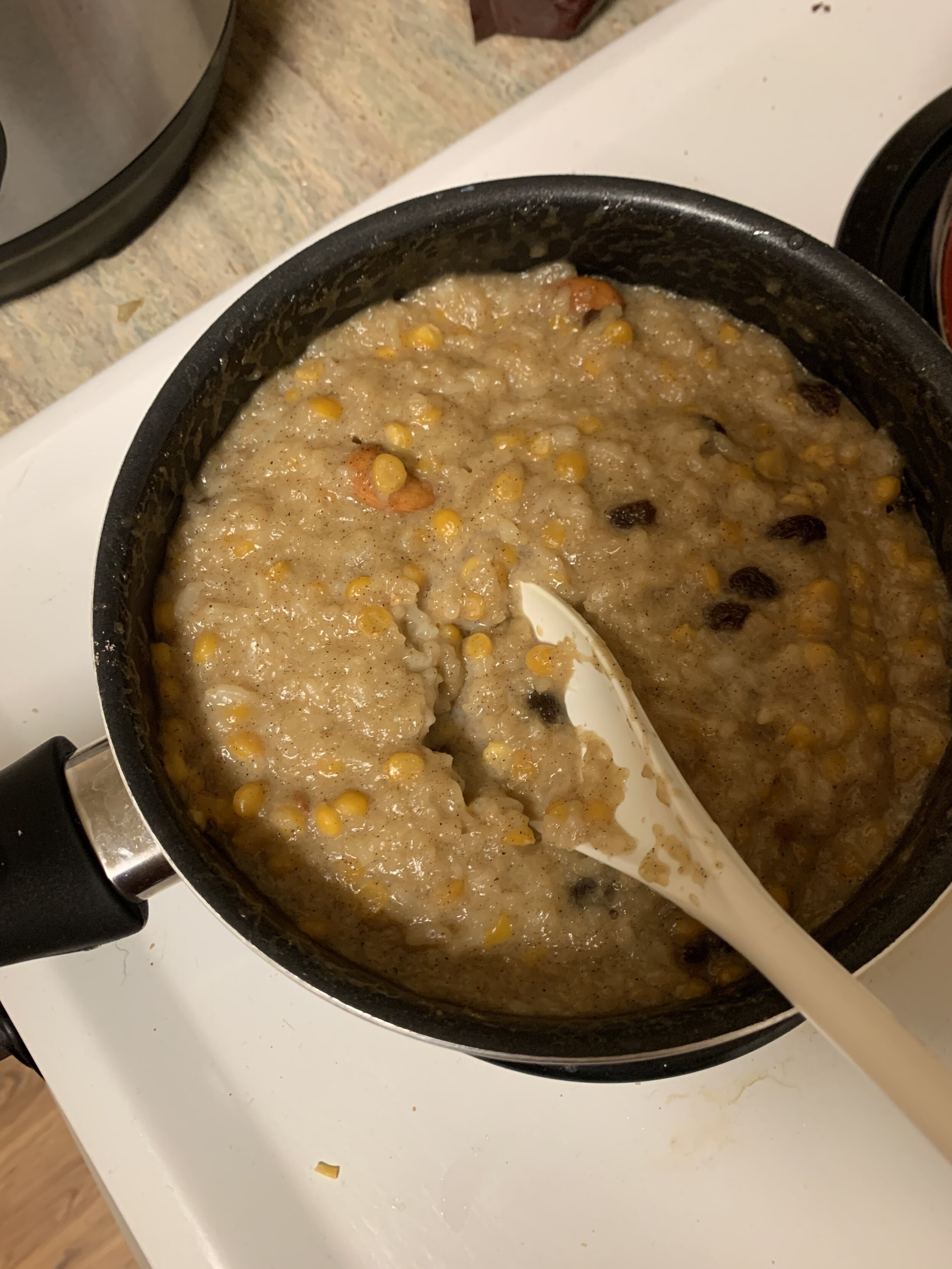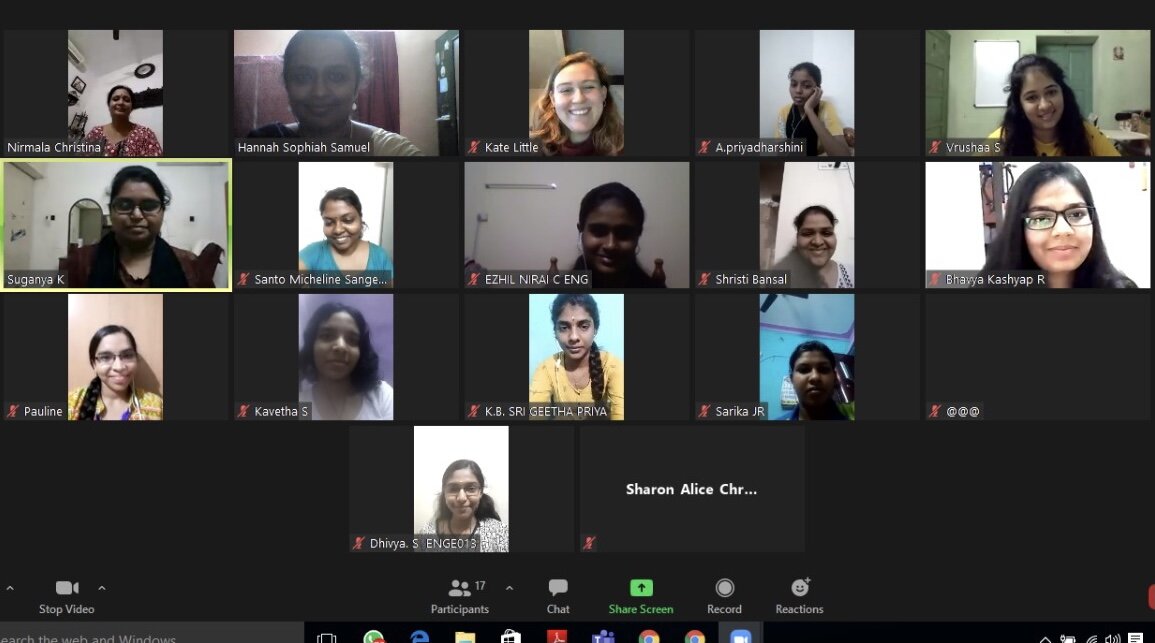Shifting, Connecting, and Coming Home
by Kate Little ‘19, Lady Doak Fellow in Madura, India
I recently listened to an International Study Centre (ISC) co-ordinator describe Madurai to a foreign visitor. “Though it is a city, Madurai is more like a big village.” I have been in this city of three million for nine months now and can confirm the truth of that statement. You never meet a stranger in Madurai.
This week I took an auto-rickshaw back to Lady Doak College (LDC) from the Meenakshi Temple in the center of the city. The driver twisted around as I got in and asked “Lady Doak Tamil Student?” Of the thousands of auto drivers in the city, he had driven me months before on this route. He was happy with how my Tamil was progressing. Over and over I’ve hopped into autos and been asked if I know Olivia, Vanessa, Stephanie, or any other foreigner who has briefly called Madurai home. Again and again I’ve given my phone number to someone only to find that that same number from my hand-me-down cell phone is already in their contacts.
I have always been the type of person who needs a plan in order to relax. India is not a country that lends itself to that disposition. Before my arrival I realized that Madurai is fairly unGoogleable. It is hard to learn from a distance about anything other than the city’s tourist attractions. Lonely Planet could not tell me where I should get drinking water, where the students hang out on the weekends, or how to drive a scooty in Indian traffic. I settled for reading through as many past fellows’ reports as possible. Only now is it apparent how clueless I was. For instance, I agonized over what I should bring, as if there were no malls, pharmacies, and grocery stores in Madurai, a city larger than any I’ve lived in before. My mom insisted that I needed some nice sandals for a work environment. It did not even occur to me that shoes are not worn indoors in India.
My research seemed to suggest that South India is full of sandy palm tree-lined beaches, yoga retreats, and sleepy backwaters. But my experience has little in common with this Eat Pray Love India that the tourists I meet are hoping for. Madurai is by no means a big tourist destination, and there have been no great spiritual revelations (though a few meals I have enjoyed approached enlightenment). Instead, it has been a lot of fighting off cockroaches, struggling with Tamil verb conjugations, heavy helpings of rice, and Jenga with ISC club students.
The last nine months have been defined by friends, having them or not. Though I am on a college campus, I fill a role more like a staff member than a student. This has made it difficult to befriend students. The previous Shansi fellow to this site, Olivia, warned me that you have to get used to making a lot of short-term friends. That has proven true for me. Many of my friends in Madurai are passing through, either as short-term foreign visitors or students on their way out of the college.
I always feel jealous of the Shansi Fellowships that have a co-fellow, though in my first few months I felt like I had unofficial co-fellows through the Japanese and Taiwanese students visiting LDC in a service-learning program and an American studying Tamil next door, Rachel. We were all new to India together and leaned on each other in our confusion through pizza orders, discussion of our mutual Tamil struggles, and trips outside the city. All of us were outlets to each other when we needed one. After two months in India, my grandpa passed away. I cancelled an outing that day with the service-learning students, but they came over anyway to cook banana pancakes, teach me Japanese card games, and keep me company.
Though those international friends have now gone back to their respective countries, I’ve felt for the last few months that I finally have a small but solid group of friends. They make up the Madurai moments I remember best and cling to when I question why exactly I chose to move to the other side of the world. For example, one former LDC student, Ramya, invited me to spend Diwali with her family. I practiced speaking Tamil with her parents and saw photo after photo of family birthday parties, festivals, weddings, and ear-piercing ceremonies. I was sent home with a huge container of tamil sweets.
Professors Sharon and Ramya have made me feel welcome through late night walks, delicious parottas, and discussions on the likelihood of hauntings in various LDC buildings.
From the beginning, students informed me of Madurai’s best spots for dessert. For my birthday one student, Meenu, took me out for said dessert on her scooty. On the way we spotted an elephant going for a walk with its handler. Meenu turned back and told me: “It’s good luck to see an elephant on your birthday. Most people have to go to the temple, but this one found you today.”
Another friend, Mathangi, and I visited one of the many old mansions in Chettinad over the weekend. We biked around the countryside, visiting old mansions along the way. Out there, we were far enough from city lights that we were able to stargaze for hours on the roof. Together we have been slowly exploring the city, driving out to lesser known historic spots and eating our way through Madurai’s new and old restaurants.
I’ve also found friendship within the ISC. My co-worker, Nirmala, and I have started planning weekends out-of-station. One such getaway was to Thekkady, where we enjoyed misty Lake Periyar, Nilgiri langurs swinging from trees, terraced tea plantations, and bats the size of my forearm. That weekend I watched my first Tamil movie (Nirmala clued me in to the plot during the commercials).
During the first hard rain of the rainy season, I ran back to LDC from the post office to find Nirmala and the ISC interns playing volleyball in the pouring rain. We were all drenched and laughing. The interns started making snow angels in the growing pool of water. Later one of those interns jumped up and down with me in the office after I received the paperwork that would allow me to go home for Christmas, just two days before my flight (It only took sixty calls to the Chennai foreigner registration office to make it happen).
Madurai’s friendship has also been extended through strangers throughout my time here. After three months of Tamil classes, I gave a speech in Tamil to twelve-year-old students who had participated in a Tamil elocution competition. I was so nervous, but after I introduced myself in Tamil, the students cheered so loudly I almost could not be heard. One student told me that she could tell I was nervous, just like they were during their speeches.
That friendliness, though often having to do with my status here as a white foreigner, has made this new place a warm one. I remember the first time I took a government bus on my own the conductor walked back and chatted with me for a few minutes in Tamil. I was nervous that I would get lost. However, at every stop along the four-hour ride, the considerate conductor walked back to tell me where we were, how long we would be there, which stalls had the best coffee and snacks, and he pointed out waterfalls and banana farms along the way.
In Bryant Park in Kodaikanal, I met a group of gardeners. One introduction snowballed into another after I greeted them in Tamil. Thirty or so women took time out to tour me through their park, introducing me to every worker we came upon.
I even received a new Tamil name from a couple selling flowers at a temple nearby. They decided on மல்லிகை பூ- Malligai poo, or jasmine flower (Flattering in Tamil, not so much in English), and handed me a string of the same. Though I am constantly in a state of confusion I have regularly been made to feel welcome through the familiarity built with these everyday gestures.
Though most foreigners visiting Madurai will see locals’ curiosity, in many of these experiences Tamil has been the bridge to a deeper connection. When I applied for this fellowship, its two-year commitment appealed to me. I hoped to leave India with some degree of fluency. However, I’ve learned that Tamil is not a language that one just picks up, and I’ve had to have patience with the rate I’m learning. It is worth mentioning that Tamil is not a widely spoken language in India. It is unusual for foreigners to learn Tamil, and it is only widely spoken in Tamil Nadu, certain areas of Sri Lanka, and Singapore. My ability to speak a few words has allowed me to connect to Madurai beyond the English-speaking LDC, a connection I didn’t notice until I left Tamil Nadu.
In November, I visited Karnataka, where I quickly realized how geographically-specific my newfound language skills are. In Madurai, I had grown comfortable with my ability to read signs and understand bits of conversation. In Mysore, Karnataka, my friend Mathangi and I spent some time talking with a local about the city. Upon learning that I was taking Tamil classes, he praised my interest in the language and culture. He then asked my friend whether she could speak Kannada, the language of Karnataka. Despite the fact Mathangi speaks Tamil, English, Hindi, and some Malayalam, he disparaged her for not taking the time to learn the language of a state we had been in exactly 24 hours.
I regularly benefit from this double standard and am privileged that I have never had to rely solely on Tamil given the many people who can speak English here. Instead, locals are thrilled that I am even trying, and are, without exception, happy to hear me mangle a sentence or two. I am ashamed that my own country does not extend the same patience to people learning English.
I can finally feel the progress I am making. Letters that were entirely incomprehensible to me have started to take shape. The meaning behind those words now sometimes follows. While the progress is slow, those moments when I can laugh along with a joke I half-understood feel like a victory. Prior fellows told me it was around the year mark that things finally started to click. I hope I am beginning to reach that point.
As a part of the Shansi orientation, we were told about the honeymoon phase of the fellowship and the frustration that follows when your life in a new country starts to become permanent. I cannot say that Madurai feels like home, and I accept that I will always be an outsider here. But now when I read those old Shansi Fellow reports, I recognize the faces in photos. I read about people I know and work with, restaurants I have enjoyed, and landmarks I have visited. This city has started to feel small and familiar in a way I wouldn’t have believed a few short months ago. As I near the end of my first year in India, I know by the end of the next I’ll be missing Madurai.


